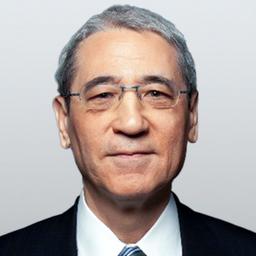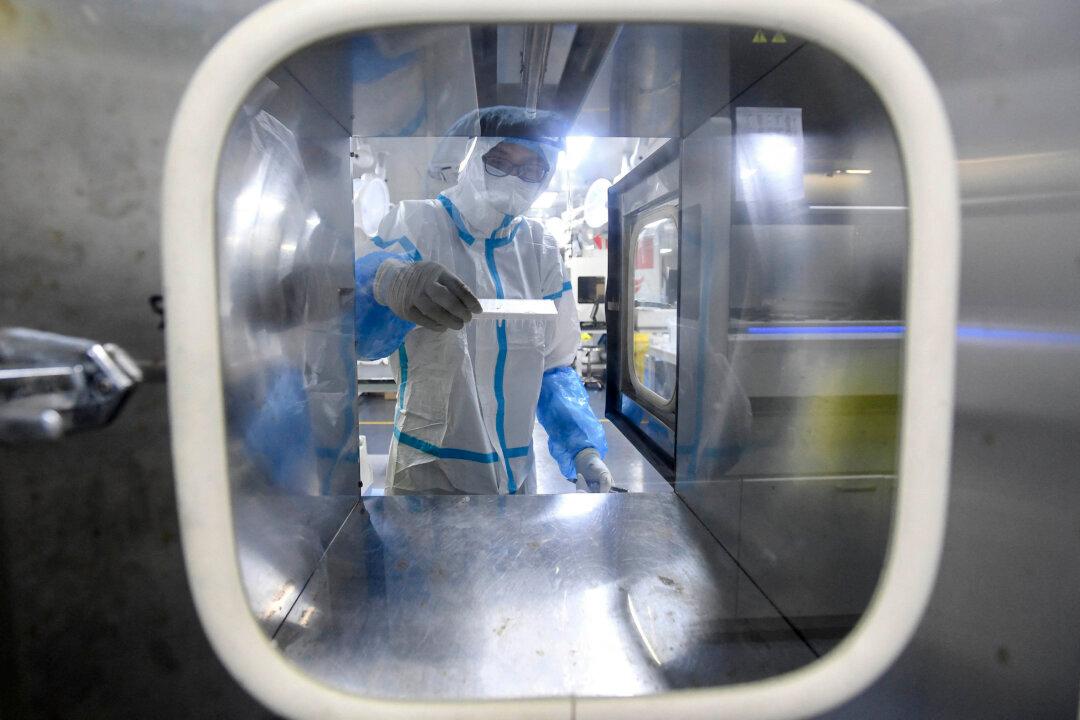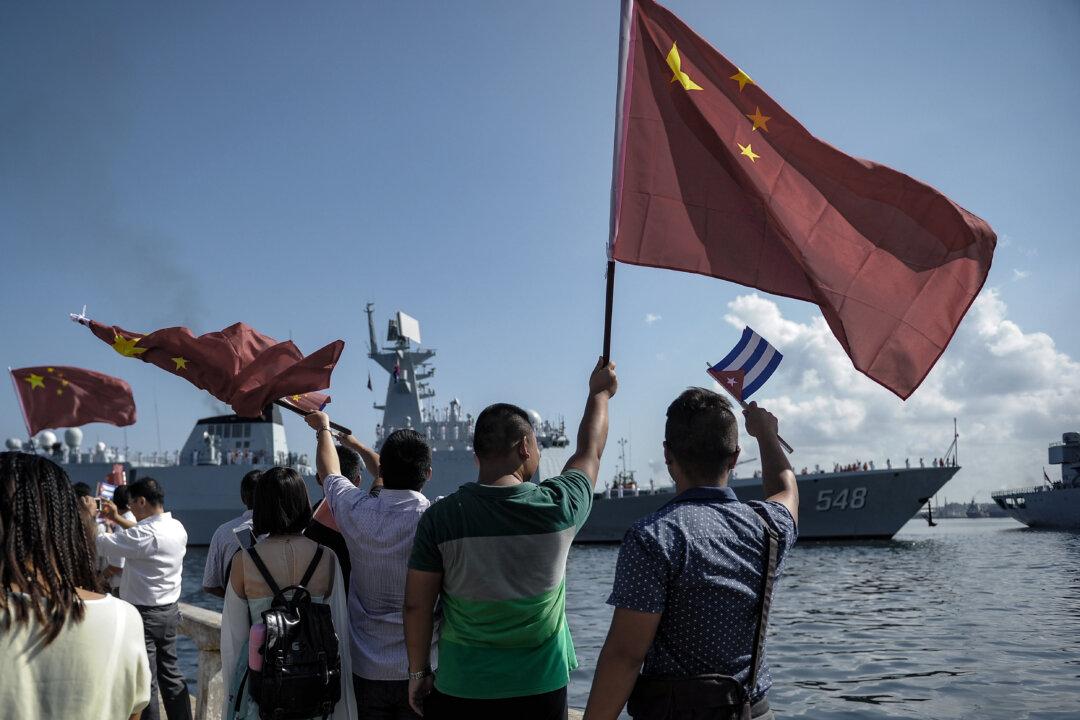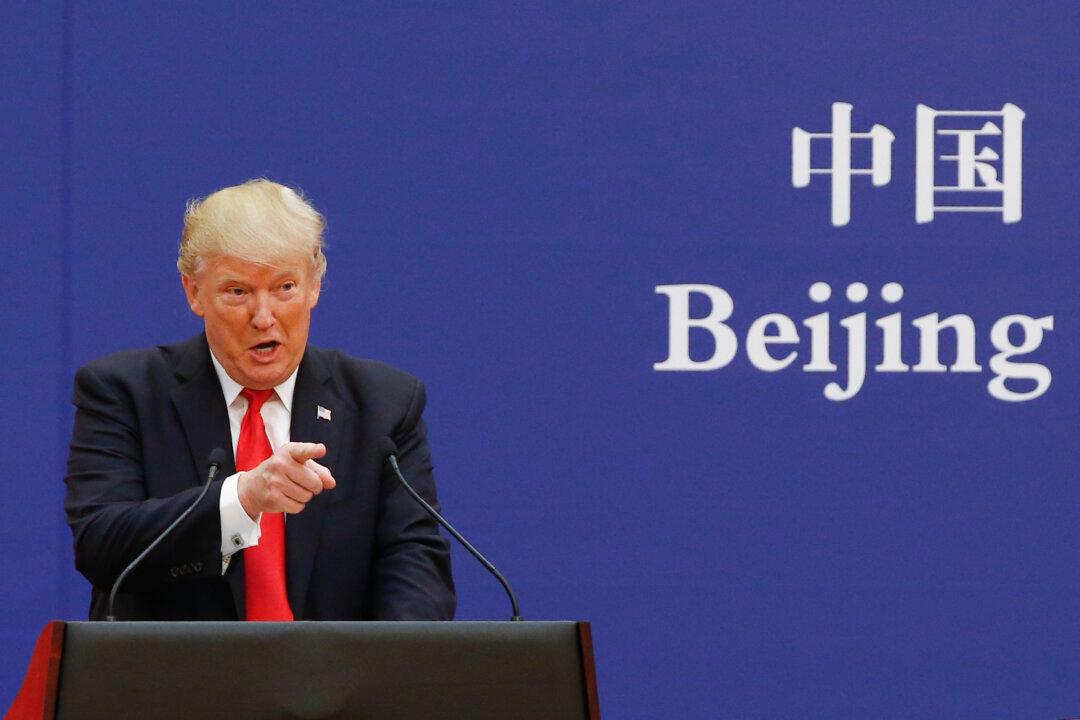Commentary
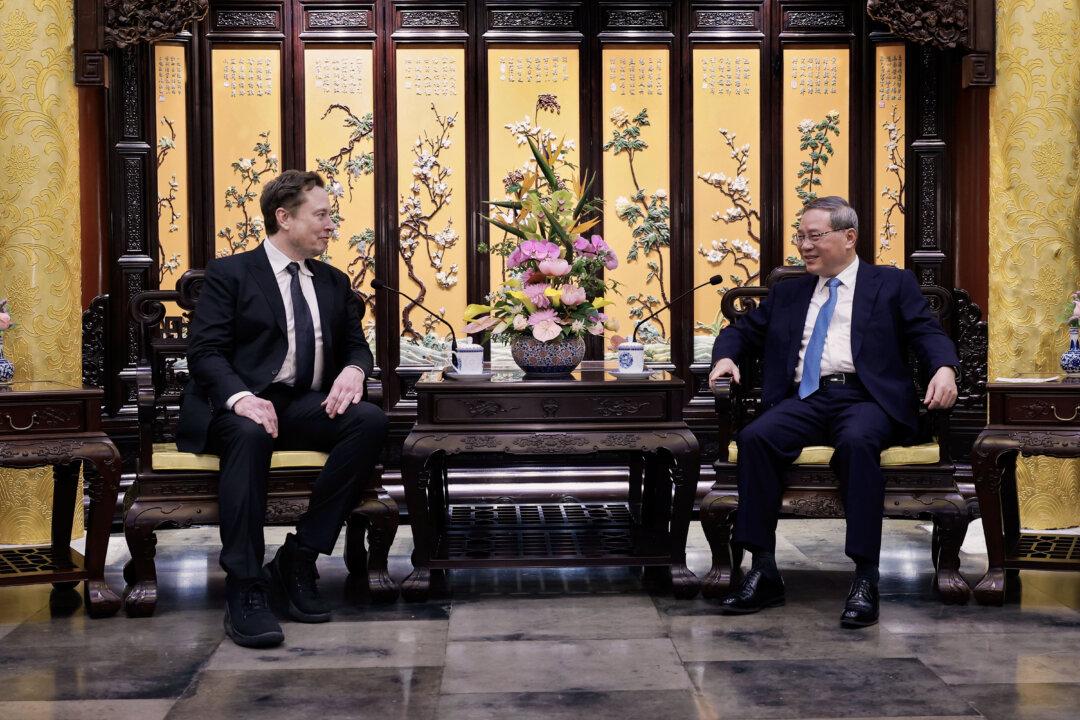
Tesla founder and CEO Elon Musk (L) meets with China's Li Qiang (R) in Beijing on April 28, 2024. Wang Ye/Xinhua via AP
Gordon G. Chang is a distinguished senior fellow at the Gatestone Institute, a member of its Advisory Board, and the author of “The Coming Collapse of China.”
Author’s Selected Articles
